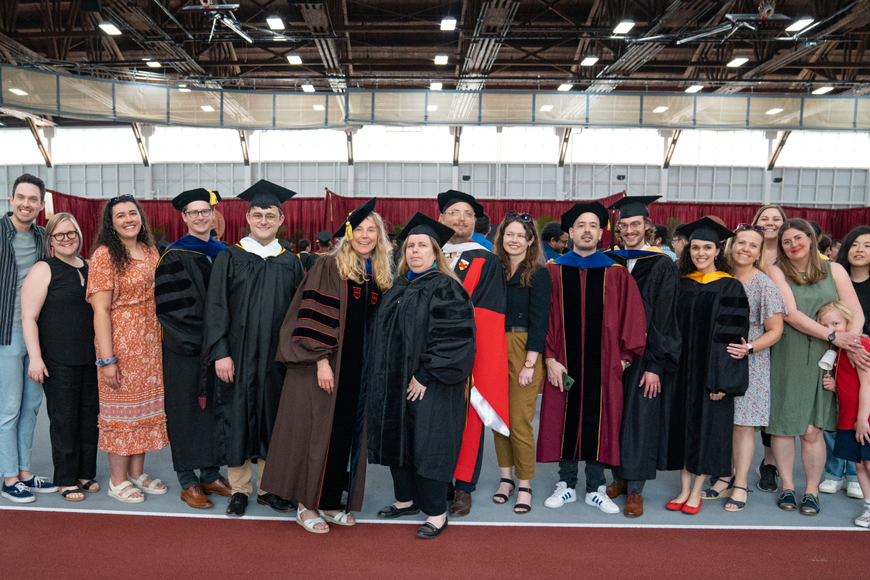Degree Programs

The graduate program in the Department of Spanish & Portuguese Studies at the University of Minnesota offers the Doctor of Philosophy degree with concentration in four areas
Research in Iberian studies in our department brings together faculty and graduate students investigating Iberia as a subject of inquiry across period, language, and identity. In transitioning from older models of area studies into transnational and global perspectives, Iberia serves as epistemological locus from which we rethink narratives of national, ethnic, linguistic, and religious identities, from the middle ages up to today. Iberian Studies places in dialogue the different cultural traditions that coexist in the peninsula, exploring their historical development and analyzing their present expressions. We underscore the value of the cultural and linguistic diversity of the peninsula, and our faculty and students have, at different times, incorporated the study of Portuguese, Arabic, Hebrew, Catalan, Basque, Galician, and Aranese, as well as the linguistic patterns of contact among them, into their research. Special attention is paid to the various transnational contexts within which Iberia is constituted at different time periods, be it within a Meditteranean context, a trans-Atalantic, or trans-oceanic, colonial and postcolonial matrix, or within a broader European framework. The Iberian Studies Initiative in our department seeks to develop a community of shared intellectual inquiry through the organization of courses and reading groups as well as a lecture series and regular international, interdisciplinary conferences that bring together major scholars and artists from the United States and abroad.
Our program is committed to the continued discussions on what Latin Americanism means today. Through a humanistic perspective that enters in dialogue with other disciplines, we explore the connections between politics and aesthetics. Our program focuses on literary and cultural studies and cultural theory, with a strong emphasis on those from Southern Cone, the Andes, Central America, Mexico, Brazil, and the Caribbean. We undertake interdisciplinary collaborations, with special focus on the particular contributions the Humanities have to offer the intellectual community. We take canonical literature and cultures as points of departure to expand the understanding of the literary, artistic and cultural production of Latin America and the Caribbean, with a strong emphasis on marginal or less visible manifestations of culture, as well as the violence exercised against them. Our program is simultaneously committed to rigorous research and to community engagement projects through an intellectual mission that also embraces the dissemination of and collaboration with scholars and artists from the regions we study. We place a strong emphasis on research on human rights and memory studies both the post-dictatorship and post-conflict transitions as in times of peace. We also underscore postcolonial and decolonial approaches, critical race studies and indigeneity studies, as well as the uses and limitations of metropolitan literary, cultural theory in peripheral contexts. Our faculty innovative research also includes theories on bio and necropolitics, gender and feminist studies, transoceanic studies, visual studies, theater and performance studies, and urban studies.
Responding to one of the greatest challenges of the twenty-first century, our department is committed to decolonial critique in an effort to undo the violence of cultural common senses inherited from centuries of colonialisms, Iberian and not. As such, building on the anti-colonialism inherent to the tradition of Global Portuguese in our department founded by the late Russell Hamilton in the mid-1960s, we approach the literatures, film, and other cultural products primarily of Brazil and Portugal but also occasionally Angola, Mozambique, and Guiné-Bissau from critical, interdisciplinary, and often comparative decolonial perspectives. We research art that challenges entrenched understandings of who may represent and inhabit particular places and how. Thus, we consider the entangled colonialities of “race,” gender, class and sexuality in connection with histories of slavery, racisms, and colonialisms; migrations, displacement, and tourism; labor exploitation and urbanism; post-conflict memory practices; and the scandals of democracy and development.
The Hispanic linguistics program in our department focuses on language in context. We analyze how social, interpersonal, and discursive contexts of language, shape language use and perceptions. Hispanic linguistics faculty and students use a variety of approaches to address issues related to language contact, phonology, pragmatics, second language acquisition, sociolinguistics, language and ideology, and syntax.
Our program is designed for scholars who intend to pursue careers in university-level research. For prospective students interested in Spanish or Portuguese interpreting or language instruction, please consider the graduate programs in the College of Education and Human Development.